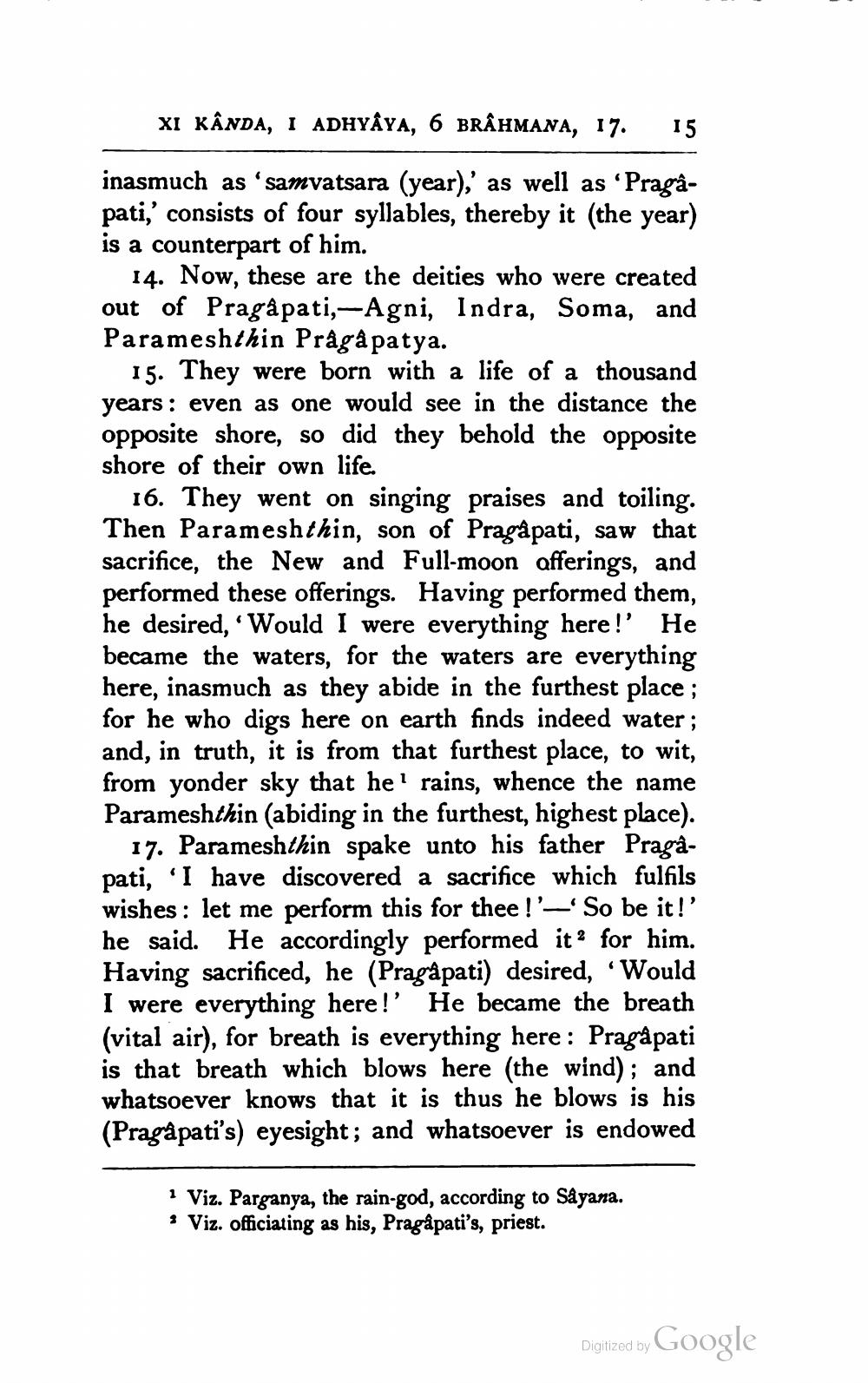________________
XI KÂNDA, I ADHYAYA, 6 BRÂHMANA, 17.
15
inasmuch as 'samvatsara (year);' as well as 'Pragapati,' consists of four syllables, thereby it (the year) is a counterpart of him.
14. Now, these are the deities who were created out of Pragàpati-Agni, Indra, Soma, and Parameshthin Pragâ patya.
15. They were born with a life of a thousand years: even as one would see in the distance the opposite shore, so did they behold the opposite shore of their own life.
16. They went on singing praises and toiling. Then Parameshthin, son of Pragàpati, saw that sacrifice, the New and Full-moon offerings, and performed these offerings. Having performed them, he desired, 'Would I were everything here!' He became the waters, for the waters are everything here, inasmuch as they abide in the furthest place ; for he who digs here on earth finds indeed water ; and, in truth, it is from that furthest place, to wit, from yonder sky that he' rains, whence the name Parameshthin (abiding in the furthest, highest place).
17. Parameshthin spake unto his father Pragapati, 'I have discovered a sacrifice which fulfils wishes : let me perform this for thee!'—'So be it!' he said. He accordingly performed it for him. Having sacrificed, he (Pragàpati) desired, “Would I were everything here!' He became the breath (vital air), for breath is everything here : Pragapati is that breath which blows here (the wind); and whatsoever knows that it is thus he blows is his (Pragàpati's) eyesight; and whatsoever is endowed
· Viz. Parganya, the rain-god, according to Såyana. • Viz. officiating as his, Pragåpati's, priest.
Digitized by Google




